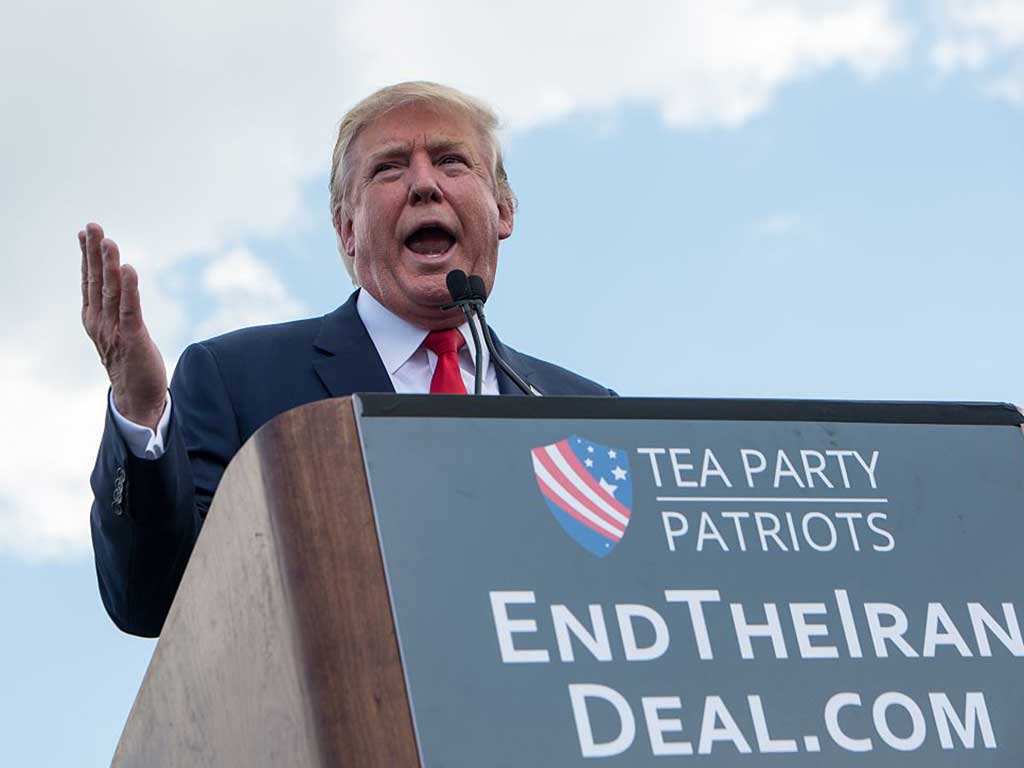Boeing brings Iran nuclear deal into focus
Boeing has agreed a $3bn deal with an Iranian airliner, testing the Trump administration’s promise to get tough on Iran

Donald Trump speaking out against the Iran nuclear deal at a Tea Party rally
On April 4, Boeing announced an agreement to sell airplanes worth $3bn to Iran Aseman Airlines, carving out a strong business presence in the country despite uncertainty surrounding the future of the Iran nuclear deal under Trump.
The 2015 nuclear agreement provided relief from certain sanctions, opening up the prospect of revitalised trade links and fresh business opportunities in Iran. Yet, Donald Trump and other Republicans have repeatedly voiced hostility towards the country, prompting hesitation among US businesses looking to move into the region.
The deal places the Trump administration in a bind, forcing the President to prioritise between his domestic and foreign policy objectives
The US government’s response to Boeing’s sizeable deal will be an important litmus test for the state of Iran-US economic relations under Trump. A statement from Boeing said: “Boeing continues to follow the lead of the US government with regards to working with Iran’s airlines, and any and all contracts with Iran’s airlines are contingent upon US government approval.”
While the deal officially requires government permission to go ahead, Senator John McCain stressed it falls fully within the law. He said: “I have opposed the Iranian agreement and I am not interested in doing anything to help the Iranians but what they’ve done is completely legal.
“They’ve got the money and it’s not a weapons system, so it doesn’t require any involvement from the Congress.” This said, Senator Marco Rubio reportedly claimed he might move to block the deal.
Boeing were quick to emphasise the deal’s potential for creating jobs: “According to the US Department of Commerce, an aerospace sale of this magnitude creates or sustains approximately 18,000 jobs in the United States.”
With such a potential for job creation, the move places the Trump administration in a bind, forcing the President to prioritise between his domestic and foreign policy objectives. If the deal is allowed to go ahead, deliveries are scheduled to start in 2022.













